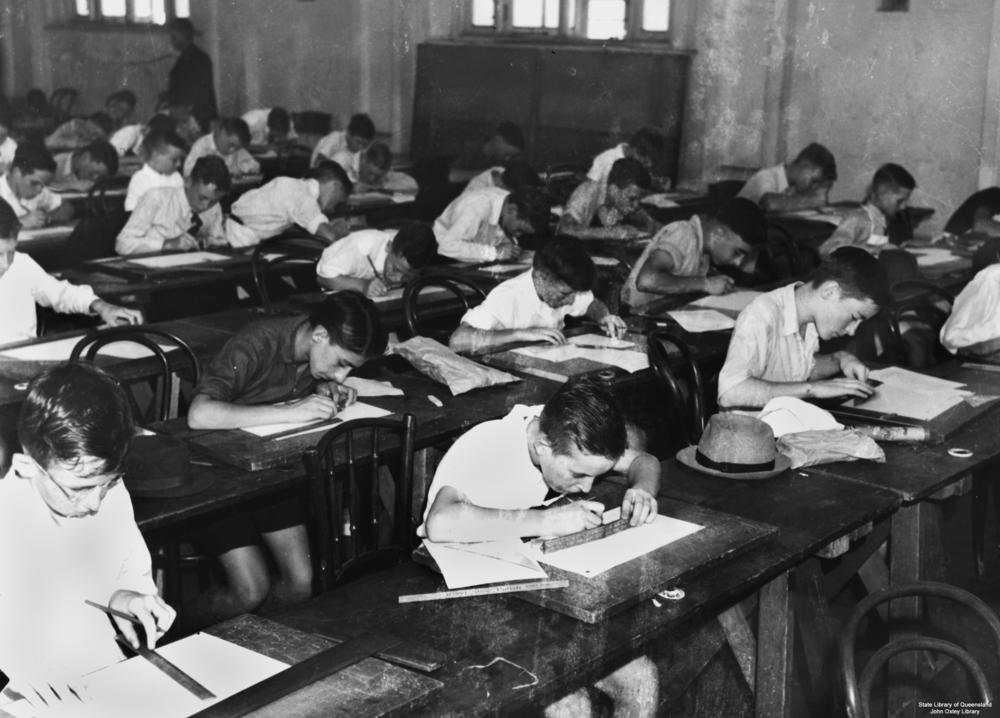Many times, I’ve heard Christians excuse the fact that many pastors routinely cheat on their seminary work. The devil didn’t make them do it. It was their culture!
It’s Not Because They Don’t Know
For years, I’ve heard foreigners make excuses for Chinese students: “They don’t know it’s cheating” or “They don’t think it’s wrong.” To put it frankly and as kind as I know how, those comments are simply patronizing and/or ignorant. I fully admit that a number of students do not “get” all the rules of plagiarism.
 However, wrongly citing sources and forgetting to mention an author are the most minor of things I see when I grade papers. In my own school, the students’ very first course is dedicated to research and writing. Many teachers reiterate the writing standards in class. Nevertheless, it’s all to no avail.
However, wrongly citing sources and forgetting to mention an author are the most minor of things I see when I grade papers. In my own school, the students’ very first course is dedicated to research and writing. Many teachers reiterate the writing standards in class. Nevertheless, it’s all to no avail.
I have directly heard from students’ themselves––from their own mouths––that they know that these behaviors are wrong. They just do it anyway because it’s easier and they don’t want to lose face by failing. I would agree that Chinese students do not take cheating/plagiarism as seriously as Westerners, but that doesn’t mean they are ignorant of what they are doing. The average American knows it’s illegal to speed when driving. They still do it. They can’t claim ignorance.
Let me offer the following comparison. What would happen if the average Chinese student went to works for Microsoft or McDonald’s? Regardless of whether they agreed with the rules or not, they would conform or be fired. Simple as that. The employee would adjust because they want a paycheck. It is irrelevant whether they are culturally “accustomed to” the standards.
This is a multifaceted problem
As Christians, how do we deal with this problem? How should we respond? People are pretty divided over the solution.
This whole phenomenon has a number of implications. For example, seminaries and training centers may be commissioning countless unqualified, if not dishonest, pastors to unsuspecting churches. Consider other settings, like evangelism or church planting training. Trainees may simply make up statistics for how many new churches have been started or how many people have heard a gospel presentation. These are essentially ways they cheat on an “oral exam” by their trainer.
In addition, if we don’t address the culture of cheating that exists even within the church, what will happen when they go into the workforce? What kind of witness will they give? How can they preach the gospel when they do not show their love for a just world where righteousness flourishes?
I’ll use this and the next post sketch a number of things we could do to make progress towards a long-term answer.
So, what’s the answer?
1. We have to stop using culture as an excuse
Culture can certainly make it either easier or more difficult to identify sin. However, sin must be called sin. “Culture” is neither all good nor all bad.
2. Doctrine of Sin
Don’t forget that Christian leaders have a fallen nature. Evangelical gospel presentations often spend a lot of time talking about the origin of sin. However, I fear some workers (in particular foreign missionaries) may be a bit naive when it comes to Chinese pastors, who are sometimes romanticized as the living saints who faithfully share the gospel amid persecution.
No doubt, the Chinese church offers many great examples of Christian leadership. That’s not the point. Sin is a persistent enemy. Christian teachers should be diligent in looking for cheating so that academic and integrity standards can be maintained.
3. Consistent Accountability
If we don’t enforce the required standards, a few consequences follow.
First, students learn not to take us seriously.
Second, we undermine our training of our students. This is because the doing of the assignments (like essays) is a major component of the learning process. We learn something as we are forced to wrestle with the problems.
Third, what if they were found cheating and were held accountable? Without accountability, Christian students may never be challenged to look at their own heart.
A Christian friend of mine said something to the effect, “There is a reason I don’t speed and it’s not because I’m a man of great virtue when I drive. It’s because I don’t want to get a ticket.” Those are sober words for teachers to remember as well when it comes to their own students.
In a true story, I taught the same group of students twice in a very short time. The first time, a lot of students failed due to cheating/plagiarism. I talked with them individually face to face, directly showing them their cheating and giving them a chance to respond. They all nodded in acknowledgement that they had done wrong. They wrote scathing reviews of me on the feedback forms. I ever heard criticism from my superiors who wondered about the severe criticism.
However, guess what? In the next class, their papers were exceptional, some of the best I’ve seen. They knew I was serious and the rose to the occasion.
Accountability helped them to learn.
Photo Credit: CC 2.0/wikipedia
Related articles
- “There is no fairness if you do not let us cheat” – Chinese parents (www.patheos.com/blogs/jacksonwu)












